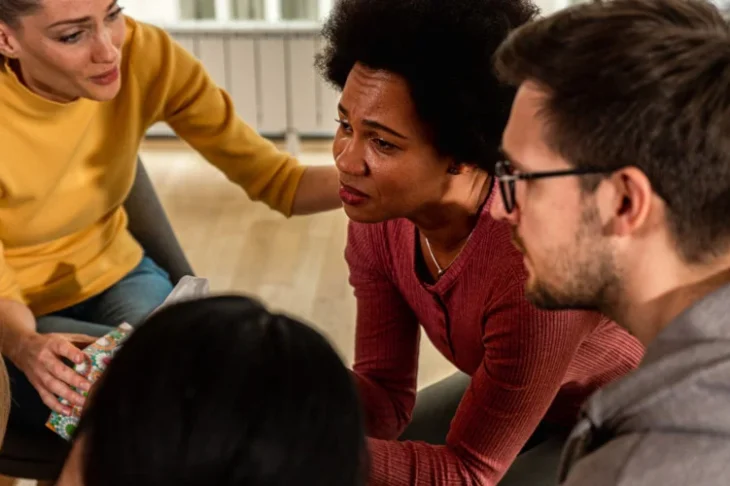
Developing Effective Communication Skills During Addiction Treatment: Unlocking the Power of Connection
Congratulations on taking the courageous step towards addiction recovery. As someone who has walked this challenging path, I understand the importance of effective communication in the healing process. Developing strong communication skills can enhance your journey, deepen your connections, and empower you to express your needs, fears, and aspirations. In your pursuit of lasting sobriety, let’s explore the transformative power of effective communication and why seeking professional help can make all the difference.
Effective Communication
- Effective communication allows you to build a solid foundation of trust with your treatment team and loved ones. It opens the door to honest and authentic conversations, enabling you to express your emotions, concerns, and challenges without fear of judgment. By developing the ability to communicate your thoughts and feelings effectively, you can create a safe space for yourself and foster deeper connections with those around you.
- Plays a vital role in navigating conflicts and resolving issues. During addiction treatment, you may encounter disagreements or misunderstandings that could trigger emotional distress. By honing your communication skills, you can express yourself assertively yet respectfully, actively listen to others, and work together towards finding common ground. These skills can help diffuse tense situations and promote healthier and more supportive relationships.
- Empowers you to set boundaries and advocate for your needs. As you progress through addiction treatment, you’ll discover the importance of self-care and the value of prioritizing your well-being. By articulating your boundaries and expressing your needs assertively, you can create a supportive environment that encourages your growth and recovery.
Seeking professional help is a crucial component of developing effective communication skills during addiction treatment. Working with therapists, counselors, and support groups provides you with guidance, resources, and a safe space to practice and refine your communication abilities. These professionals are trained to listen without judgment, offer insights, and provide practical tools to enhance your communication skills.
Let’s explore the pros and cons of honing these skills to help you navigate the challenges and opportunities that lie ahead.
Pros:
- Enhanced Self-Expression: Effective communication allows you to express your thoughts, feelings, and needs with clarity and confidence. By mastering this skill, you can articulate your emotions and experiences, enabling others to understand and support you better.
- Deeper Connections: Strong communication skills foster deeper connections with your treatment team, loved ones, and support groups. Honest and open communication builds trust, promotes understanding, and strengthens relationships, providing a solid support network for your recovery.
- Conflict Resolution: Effective communication equips you with the tools to navigate conflicts and resolve issues constructively. By actively listening, expressing yourself assertively, and seeking common ground, you can minimize misunderstandings and promote healthier resolutions.
- Boundary Setting: Developing effective communication skills empowers you to set and maintain healthy boundaries. You can clearly communicate your limits, needs, and expectations, ensuring that your recovery journey remains focused on your well-being and growth.
Cons:
- Challenging Conversations: Developing effective communication skills may involve engaging in difficult conversations. It requires vulnerability and facing uncomfortable emotions. However, these challenges can lead to personal growth and stronger relationships in the long run.
- Learning Curve: Building effective communication skills takes time and practice. It requires patience and a willingness to learn and adapt. Remember, it’s a process, and every step forward brings you closer to improved communication.
- Emotional Exposure: Effective communication may involve expressing your emotions, which can be intimidating. However, sharing your feelings in a safe and supportive environment allows you to heal, grow, and build resilience.
- Misinterpretation: Despite your best efforts, there may be instances where your message is misinterpreted or misunderstood. It’s important to remember that effective communication is a two-way process, and clarifying misunderstandings can help foster better understanding.
While there may be challenges associated with developing effective communication skills during addiction treatment, the benefits far outweigh the drawbacks. By practicing these skills and seeking professional guidance, you can unlock the power of effective communication, fostering stronger connections, resolving conflicts, and advocating for your needs. Embrace this journey, knowing that the growth you experience will contribute significantly to your long-term recovery and overall well-being.
Developing effective communication skills during addiction treatment is a transformative journey that can significantly impact your recovery and overall well-being. By honing these skills, you empower yourself to express your thoughts, needs, and emotions authentically, fostering deeper connections and promoting personal growth. Remember, seeking professional help and guidance is crucial in this process, as skilled counselors can provide the support and tools needed to enhance your communication abilities.
As Carl W. Buechner once said, “They may forget what you said, but they will never forget how you made them feel.” This quote beautifully encapsulates the power of effective communication in the counseling context. By learning to communicate with empathy, active listening, and understanding, you have the opportunity to make a profound impact on others’ lives, just as your own journey is being positively impacted.
So, embrace the journey of developing effective communication skills. Embrace the challenges and triumphs, the moments of vulnerability and growth. By investing in your communication skills, you are investing in your recovery, your relationships, and your future. Remember, you have the strength within you to overcome any obstacles that come your way. Reach out to a counselor, open yourself to learning and growth, and watch how effective communication becomes a powerful catalyst for positive change in your life.
Effective communication is a cornerstone of building a trusting and collaborative therapeutic relationship. By nurturing these skills, you can create a safe space for self-exploration, healing, and personal transformation. Embrace the opportunity to develop effective communication skills, and witness how it can enrich your counseling journey, guiding you towards lasting recovery and a life filled with purpose and fulfillment.
Embrace the opportunity to develop these skills, for they will serve as a cornerstone of your journey towards a healthier, more connected, and fulfilling life. Take that leap, reach out for professional help, and discover the power of effective communication in your recovery.


